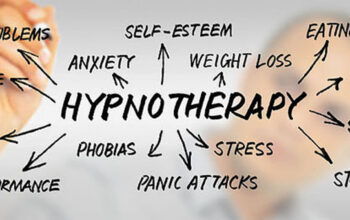Smoking is synonymous with numerous health risks, and perhaps the most well-known and severe consequences are its effects on the lungs. The harmful chemicals in tobacco smoke can inflict significant damage on the respiratory system, leading to a wide range of health issues. In this article, we will delve into how smoking affects your lungs and the devastating consequences it can have on your respiratory health.
1. Reduced Lung Function
One of the most immediate and noticeable effects of smoking on the lungs is reduced lung function. The chemicals in tobacco smoke can damage the delicate air sacs in the lungs, known as alveoli, and cause inflammation. This inflammation narrows the airways and makes it more challenging to breathe. Over time, this can lead to a condition called chronic obstructive pulmonary disease (COPD), which includes chronic bronchitis and emphysema.
2. Chronic Bronchitis
Smoking is a major cause of chronic bronchitis, a condition characterized by chronic coughing, excessive mucus production, and inflammation of the bronchial tubes. This leads to persistent breathing difficulties and increased susceptibility to respiratory infections.
Visit https://www.discountciggs.com/rolded-gold-blue-light-cigarettes.html.
3. Emphysema
Emphysema is another debilitating lung condition caused or exacerbated by smoking. In emphysema, the walls of the alveoli in the lungs become damaged and lose their elasticity. This reduces the ability of the lungs to expand and contract efficiently, resulting in shortness of breath and decreased oxygen exchange.
4. Increased Risk of Lung Cancer
Perhaps the most well-known consequence of smoking is the increased risk of lung cancer. Smoking is the leading cause of lung cancer, responsible for approximately 85% of all cases. The harmful substances in cigarette smoke, including carcinogens like benzene and formaldehyde, can cause genetic mutations in lung cells, leading to the uncontrolled growth of cancerous cells.
5. Respiratory Infections
Smoking weakens the immune system’s ability to defend against respiratory infections. Smokers are more susceptible to infections such as pneumonia, bronchitis, and the common cold. These infections can be more severe and have longer recovery times in smokers compared to non-smokers.
6. Asthma
Smoking exacerbates the symptoms of asthma, a chronic respiratory condition characterized by airway inflammation and bronchospasms. Smoking can trigger asthma attacks and make asthma management more challenging.
7. Reduced Lung Growth in Youth
Youth and young adults who smoke are at risk of stunted lung growth. Smoking during this critical period can permanently reduce lung function, setting the stage for respiratory problems later in life.
8. Secondhand Smoke
It’s not just smokers who are at risk. Exposure to secondhand smoke, also known as passive smoke, can have serious consequences for non-smokers, especially children and those with pre-existing respiratory conditions. Secondhand smoke can exacerbate asthma, increase the risk of respiratory infections, and contribute to sudden infant death syndrome (SIDS) in infants.
9. Decreased Physical Stamina
Smoking can reduce physical stamina and exercise tolerance. Smokers may find it more challenging to engage in physical activities due to shortness of breath and reduced lung capacity.
10. Worsening of Existing Lung Conditions
For individuals with pre-existing lung conditions such as asthma, smoking can worsen symptoms and decrease the effectiveness of medications. It can also lead to more frequent and severe exacerbations.
11. Difficulty Quitting Smoking
Smoking itself can become a vicious cycle. As lung function deteriorates, quitting smoking becomes more challenging, as the addiction to nicotine becomes more deeply entrenched. However, quitting is crucial to slowing the progression of lung disease and improving overall health.
Conclusion
The impact of smoking on the lungs is profound and far-reaching. From reduced lung function and chronic bronchitis to emphysema, lung cancer, and increased susceptibility to respiratory infections, smoking poses a grave threat to respiratory health. Quitting smoking is the most effective step you can take to mitigate these risks and improve your lung health. It’s never too late to quit smoking and give your lungs a chance to heal. By breaking free from the grip of tobacco addiction, you can protect your lungs, breathe more easily, and ultimately extend your life expectancy.



